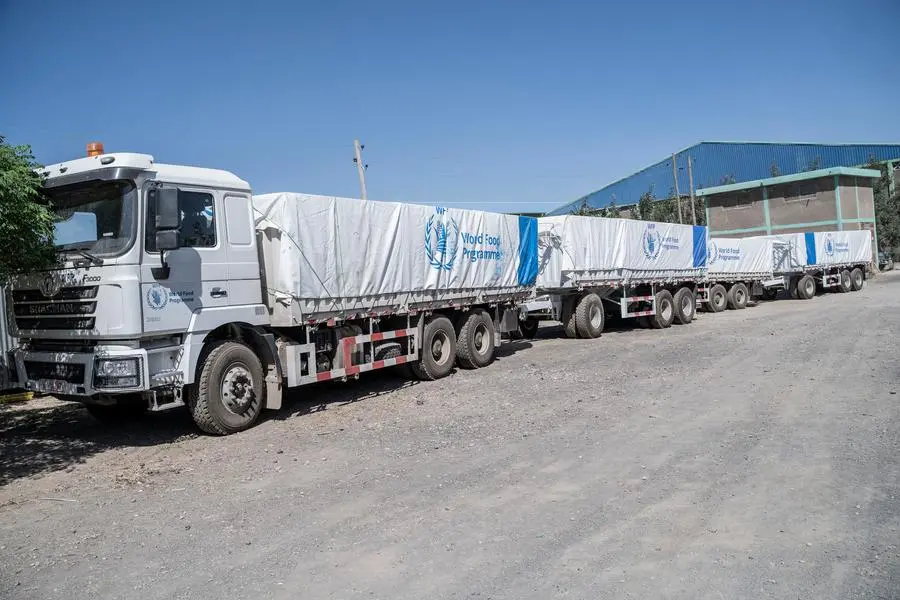PHOTO
The World Food Programme (WFP) will halt some food aid to Ethiopia, the UN agency said Friday, following a decision by USAID to suspend food assistance after discovering that supplies were being diverted from those in need.
"While we will temporarily halt food aid assistance in Ethiopia, nutrition assistance to children, pregnant and breastfeeding women, school meals programs, and activities for building the resilience of farmers and pastoralists will continue uninterrupted," WFP said in a statement.
The decision will affect millions of Ethiopians facing severe food shortages due to a devastating war in the northern region of Tigray as well as a punishing drought in the south and southeast that has also struck Somalia and parts of Kenya.
It comes on the heels of Thursday's announcement by the US government's main international aid agency to suspend food aid until reforms are instituted.
USAID and Ethiopia's government said Thursday that they were committed to addressing the "deeply concerning revelations of food aid diversion".
"The two governments are conducting investigations so that the perpetrators of such diversion are held to account," USAID and Ethiopia's foreign ministry said in a joint statement.
The head of WFP, Cindy McCain, said Friday that the agency would "resume our operations as soon as we can ensure that food reaches the people who need it the most."
"Food diversion is absolutely unacceptable and we welcome the Government of Ethiopia's commitment to investigate and hold accountable those responsible," she said.
- Multiple crises -
A WFP spokesperson told AFP the final food aid deliveries were being completed in Somali region and refugee camps.
"No more food will then be distributed until WFP can resume relief food operations in Ethiopia," the spokesperson added.
The UN agency said it was boosting monitoring measures including the tracking of supplies to prevent food aid from falling into the wrong hands.
Last month, USAID and WFP said they would freeze food aid to Tigray after the agencies discovered that shipments were being diverted to local markets.
Neither agency has identified those responsible for taking the aid and reselling it.
In addition to the crisis in Ethiopia's drought-hit south, northern Tigray suffered from dire shortages of food, fuel, cash and medicines during the two-year conflict between forces loyal to the federal government and the Tigray People's Liberation Front.
A peace deal signed on November 2 just passed the seven-month mark. The implementation of the accord has progressed slowly, without a major return to fighting, and some basic services have resumed to the region of six million people.
But media access remains restricted, and it is impossible to independently verify the situation on the ground.
"This year, more than 20 million people in Ethiopia urgently need humanitarian food assistance, as the long-lasting effects of conflict and drought continue," WFP said Friday.





















